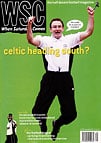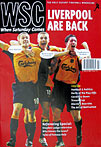 Borussia Dortmund have just set a transfer record that should last. Matt Nation, the first of our far flung correspondents to get to the postbox, explains why
Borussia Dortmund have just set a transfer record that should last. Matt Nation, the first of our far flung correspondents to get to the postbox, explains why
Günter Netzer recently complained that the Bundesliga was lacking “personality players who command a big fee”. While the rest of the country pondered the link between Alan Shearer and the word “personality”, Borussia Dortmund snapped up the Brazilian forward Amoroso for DM 50 million (£15.7 million) from Parma.
